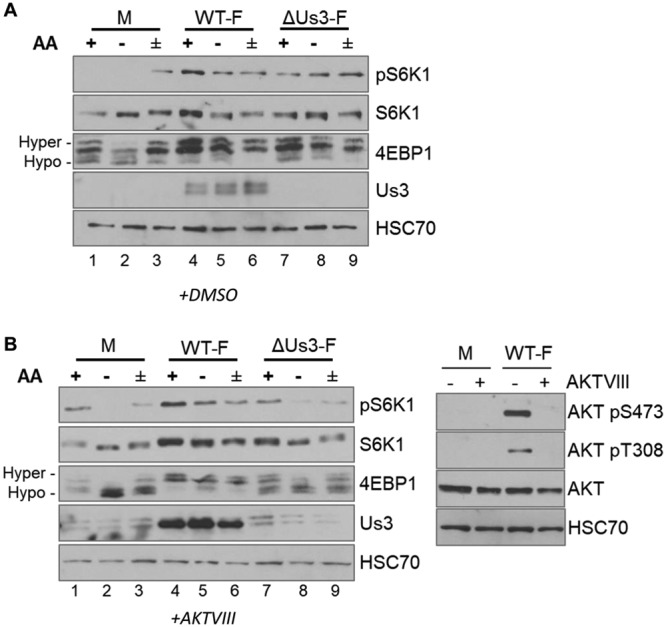FIG 2.

Responsiveness of mTORC1 to AA withdrawal in infected cells is regulated by the HSV-1 Us3 and host AKT Ser/Thr kinases. NHDFs growth arrested by serum deprivation were mock infected or infected with the WT HSV-1 F strain (WT-F) or a Us3-deficient virus (ΔUs3-F). At 4 hpi, cultures were treated with dimethyl sulfoxide (DMSO) (A) or the AKT inhibitor Akt VIII (B, left). At 9 hpi, cultures were either incubated in AA-free RPMI 1640 for 50 min (−), incubated in AA-free RPMI 1640 for 50 min followed by a 30-min restimulation in AA-replete RPMI 1640 (±), or left in AA-replete DMEM for 50 min (+). Total protein was isolated and analyzed by immunoblotting using the indicated antibodies. Migration of hyperphosphorylated (Hyper-) and hypophosphorylated (Hypo-) 4E-BP1 is indicated to the left. HSC70 serves as a loading control. pS6K1, S6K1 phosphorylated at Thr389. (B, right) Control showing the efficacy of Akt inhibitor VIII treatment. Total protein isolated from NHDFs mock infected (M) or infected with WT HSV-1 strain F in the presence (+) or absence (−) of Akt inhibitor VIII (AKTVIII) was analyzed by immunoblotting using the indicated phosphospecific anti-Akt antibodies (AKTpS473 and AKTpT308) or an antibody recognizing total Akt (AKT). HSC70 is a loading control.
